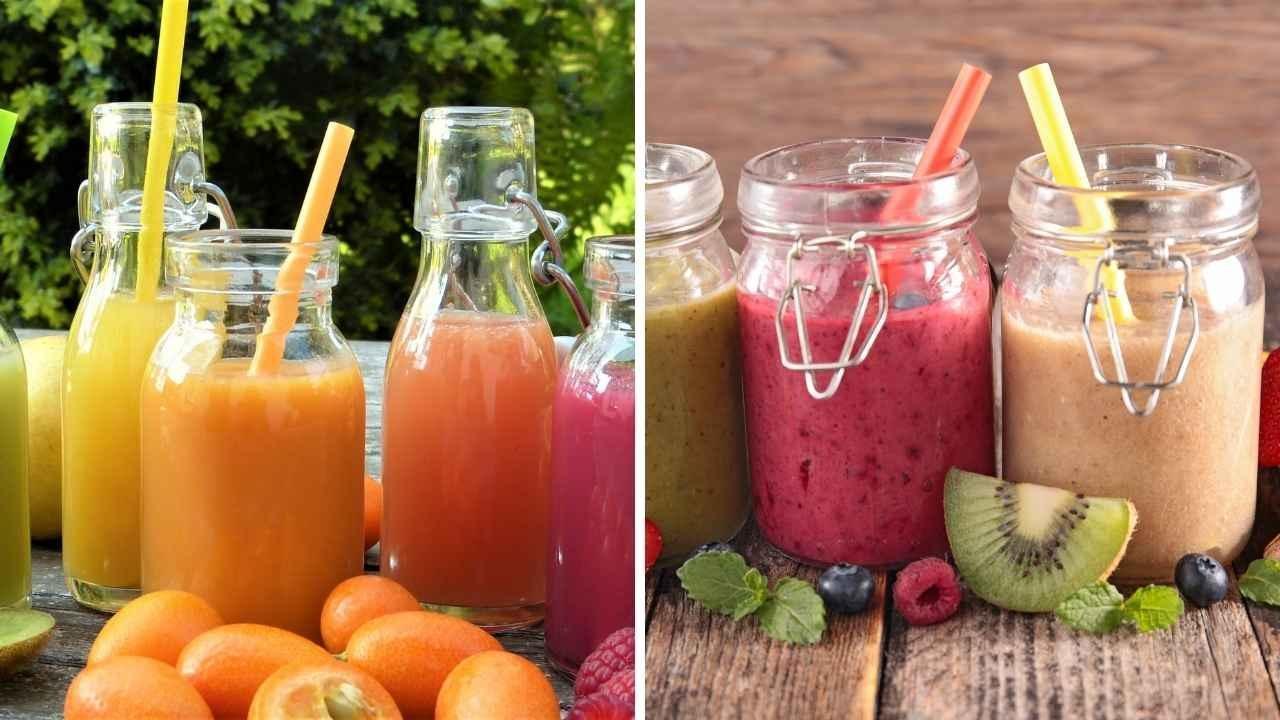
Post by : Mikhael Nasser
When discussing nutrition, juices and smoothies frequently take the spotlight due to their vibrant colors and health benefits. The question many ask is: Which is more beneficial for your health—juice or smoothie?
With an increasing focus on wellness, this topic has sparked significant interest. Below is a clear explanation of the differences presented in an easy-to-understand format.
Although both drinks derive from fruits or vegetables, their preparation methods vastly differ, leading to varied effects on the body.
Juice is obtained by extracting the liquid from fruits and vegetables. This process results in:
A light, refreshing beverage
Concentration of vitamins
Minimal or zero fiber content
Common choices include orange, apple, and mixed vegetable juices. Juice is quickly absorbed, making it a favorite morning option for those needing an energy lift.
A smoothie incorporates the whole fruit or vegetable, including fiber. No part is discarded.
Typically, smoothies include:
Fruits and vegetables
Dairy or dairy alternatives
Whole grains
Nuts or seeds
This blend results in a creamy, thick drink that offers more satiety compared to juice.
While both drinks are nutritious, they interact with the body differently.
Both juices and smoothies are rich in nutrients. However:
Juices deliver nutrients quickly.
Smoothies provide a steadier energy release through slower digestion.
Smoothies excel in fiber content.
Juices typically lack this crucial nutrient, while smoothies retain it.
Fiber benefits the body by:
Enhancing digestion
Regulating blood sugar levels
Promoting a feeling of fullness
Supporting gut health
This is a significant reason why nutritionists often prefer smoothies.
Natural sugars also play a role in health.
Juices generally contain higher sugar levels due to more fruit content.
Smoothies have natural sugars, but the fiber moderates absorption.
For those monitoring sugar intake, smoothies are typically a better option.
Smoothies can keep you satisfied longer thanks to their fiber and additional ingredients such as yogurt or oats. Many opt for smoothies as quick meals because they curb hunger effectively.
Juices might refresh but don’t provide sustained fullness, which can lead to feeling hungry shortly after consumption.
Juice is best for:
A rapid energy boost
Lightness
Hydration
Simpler digestion during recovery
It’s often consumed in the morning or following workouts.
Smoothies are perfect when you want:
A filling treat
A substitute for meals
Pre- or post-exercise nutrition
Sustained energy throughout the day
They’re especially favored among active individuals or those with hectic lifestyles.
Juices serve well for:
Individuals with delicate digestion
People recovering from illness
Those struggling with solid fruits
Anyone wanting quick vitamins without the fullness
Smoothies are ideal for:
Individuals aiming for weight loss
Fitness enthusiasts
Children needing extra nutrition
Those seeking enhanced digestion
Anyone desiring prolonged energy
Both drinks have health advantages, but moderation is key.
Elevated sugar intake
Weight gain
Blood sugar fluctuations
Quick hunger return
Overconsumption of calories
Unhealthy outcomes from added sugars
Heavy sensations with large servings
Balance is essential in consumption.
Nutritionists frequently argue that smoothies generally offer more health benefits because they retain the whole fruit and its fiber, keeping you fuller for longer. Nevertheless, fresh vegetable juices can also be nutritious when enjoyed in moderation.
Many experts advocate for incorporating both into your diet, depending on your needs.
Utilize fresh, whole fruits over processed blends
Minimize added sugars
Add greens like kale
Opt for water, coconut water, or milk
Maintain appropriate portion sizes
For further science-driven nutritional guidance, reputable sites like Healthline provide valuable resources.
Ultimately, in the debate of juices versus smoothies, which is healthier?
If you prioritize sustained energy, improved digestion, and fiber, smoothies take the lead.
For quick hydration and nutrients, fresh juice remains a fantastic option.
Both beverages can complement a healthy lifestyle. The key is choosing based on your specific needs and routine.
The content in this article is intended for informational purposes only and should not be construed as medical or nutrition advice. Individual dietary requirements can differ, and it is recommended to consult with a healthcare provider or nutritionist for personalized guidance before making significant dietary changes. The opinions expressed are based on general nutritional knowledge and should not replace professional advice.










Auger-Aliassime Advances to ATP Finals Semifinals After Defeating Zverev
Felix Auger-Aliassime overcomes Alexander Zverev to secure a semifinal spot against Carlos Alcaraz,

Historic Overtime Goal Secures Victory for Islanders
Matthew Schaefer sets records as the youngest NHL player to score an overtime goal, leading the Isla

Flyers Triumph Over Blues 6-5 with Zegras' Shootout Heroics
In a nail-biter, the Flyers defeated the Blues 6-5, thanks to Trevor Zegras who starred with two goa

Hurricanes Clinch Thrilling 4-3 Victory Over Canucks with Aho's Overtime Goal
Sebastian Aho's late overtime goal leads the Carolina Hurricanes to a 4-3 win against the Vancouver

Justin Thomas Undergoes Successful Surgery, Delaying 2026 Season Start
Justin Thomas had successful back surgery and will miss the start of the 2026 season as he focuses o

Kai Trump Gains Experience despite Missing LPGA Cut
Despite finishing last, Kai Trump showcased improvement in her LPGA debut, gaining valuable experien